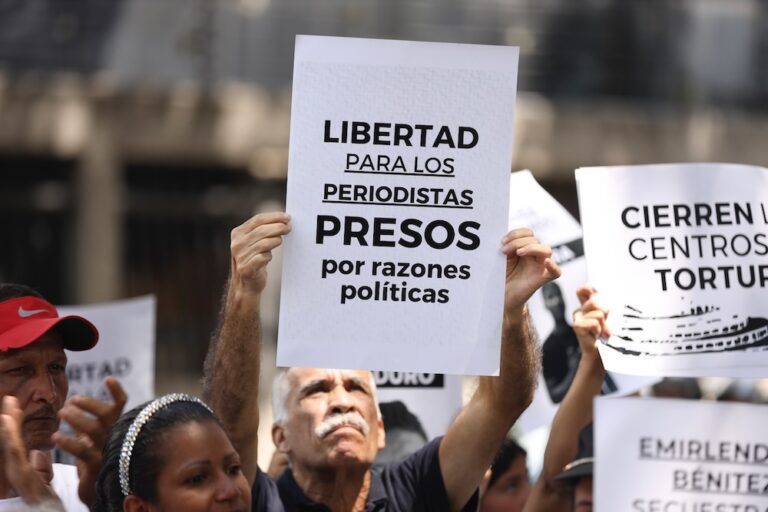"It is vital that all existing human rights commitments are integrated and mainstreamed throughout the GDC. States must ensure complementarity, coherence, and consistency between the GDC and existing international human rights commitments" - ARTICLE 19
This statement was originally published on article19.org on 31 May 2023.
ARTICLE 19 submitted its response to the Open Consultation on the development of the Global Digital Compact (GDC). In it, we argue that the Compact’s principles and commitments must be firmly grounded in human rights and must reaffirm the core principle that the same rights that apply offline also apply online.
The GDC process, organised by the Office of the United Nations Secretary General’s Envoy on Technology, was proposed in the UN Secretary General’s Our Common Agenda report: the Secretary General’s vision for the future of global cooperation. The GDC is expected to ‘outline shared principles for an open, free and secure digital future for all’.
The process of developing the Compact has involved stakeholders, ranging from the governments and United Nations to the private sector, civil society, grass-roots organisations, academia and individuals. All were invited to participate and submit inputs and views to the Open Consultation.
ARTICLE 19 considers that the existing international human rights framework already offers a flexible and adaptable baseline for the governance of the digital space. It is therefore vital that all the existing commitments are integrated and mainstreamed throughout the GDC. States must ensure complementarity, coherence, and consistency between the GDC and existing international human rights commitments, in order to avoid issuing contradictory and confusing guidance to technology actors.
In its submission, ARTICLE 19 shared the following recommendations on the issues outlined in Our Common Agenda:
- Connect all people to the internet, including schools
The GDC must address the protracted problem of the digital divide, and support progress towards achieving meaningful and inclusive connectivity for all. It must affirm the relevance of universal and meaningful connectivity as a fundamental enabler of human rights and focus on its relevance for the protection, promotion, and enjoyment of civil and political rights.
States must recognise in the GDC the particular importance of small, community, and non-profit operators in providing complementary connectivity for rural, remote, and other communities that are currently marginalised or overlooked by traditional telecommunication infrastructure development models
- Avoid internet fragmentation
The GDC must address internet fragmentation and its threat to human rights, and recognise the role that internet blocking, filtering, throttling, and total shutdowns play in exacerbating it.
States must commit to ceasing full internet shutdowns, and refrain from imposing filters on content. They must also commit to ceasing actions that place responsibilities on internet service providers to monitor their networks proactively in order to detect possible illegal content or provide preferential treatment to certain types of content, undermining the principle of net neutrality.
- Protect data
Data protection legislation should never be used to undermine human rights. Yet around the world, we’re seeing cases where such frameworks are inappropriately used to extend the privacy rights of individuals to companies, further entrenching their power and weakening journalists’ ability to hold them accountable or fail to balance data protection with the right to information.
Therefore, any elaboration or reference to data protection in the GDC must centre people and communities and be consistent with international human rights standards and principles.
- Apply human rights online
The relationship between technology, and the right to freedom of expression and other human rights, goes well beyond the ‘content layer’ of the internet. The GDC must take a ‘full stack’ approach to technology governance, looking at every level of the modern technology stack. Only this will ensure coherence between regulations addressing the different layers of ‘the stack’, from manufacturing to infrastructure to content.
Governments and private sector actors need to take an unequivocal human rights-based approach across all of the issues addressed in the GDC.
- Introduce accountability criteria for discrimination and misleading content
ARTICLE 19 calls on all stakeholders to ensure clarity and specificity when addressing this issue. As it stands, the framing of the topic is too vague and not clear, and might be subject to interpretations that could inevitably lead to crack down on dissent, and violations of media freedom and freedom of expression.
Any restrictions on disinformation and hate speech must comply with existing international human rights standards.
- Promote regulation of artificial intelligence
Any efforts to regulate the design, development, and deployment of AI technologies must take a rights-based approach and ensure that there are clear safeguards and red lines in place where technologies pose a risk to human rights.
Regulation must also ensure meaningful transparency and accountability, including through appeal and redress mechanisms.
ARTICLE 19 will continue to engage in the Global Digital Compact process in the lead up to the Summit of the Future in September 2024, when the final text of the Compact is to be agreed.



